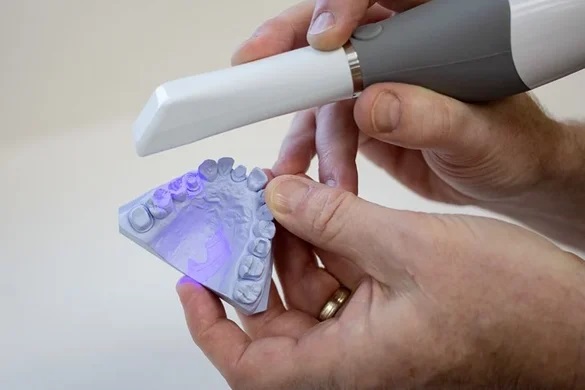
7oaks Clinic Blog features news and industry insight around dental implants and dental implant technology

Published by 7oaksclinic blog on 07 October 2021 11:18 am
Asking whether you have gum disease should be an occasional question for everyone, and not just people concerned about their dental health. This is because gum disease is really common. Gum disease refers to the inflammation or infection of gums after the build-up and hardening of plaque around the gums. Specifically, it is because plaque contains bacteria, with certain types being harmful to your oral health.
In the UK, 90% of people have some gum disease and according to the European Federation of Periodontology, for people over 35, 8 out of 10 people suffer from a type of gum complaint. These numbers may sound extreme, but in fact, these numbers represent all the people with different types of gum disease of varying severity.
For most instances of gum disease, it is difficult to detect any problems because gum disease symptoms can occur painlessly. There are three types of gum disease: Gingivitis, Periodontitis, and Acute Necrotising Ulcerative Gingivitis (ANUG). However, you should mainly focus on the symptoms that accompany each type of gum disease to determine which actions to take in your efforts to get rid of gum disease.

Gingivitis is the first and most common type of gum disease. It is simply an inflammation in the gums and you may be familiar with its symptoms because most people experience it at least once in their lifetime. People with gingivitis may experience swollen gums, bleeding while cleaning their teeth, or bad breath.
Periodontitis is a more progressive type of gum disease that develops when this inflammation in the gums (gingivitis) isn’t adequately treated. Yet, 50% of the population may experience symptoms of which one in five will have a severe form of the disease. Periodontitis describes the spread of the inflammation to the bones and ligaments that support the teeth. Here, pockets form between gums and teeth as a result of the accumulation of plaque which then causes the gums to pull away from your teeth. If you have periodontitis, you will have symptoms that may include bad breath, loose teeth which can eventually lead to missing teeth or severe tooth loss, sensitive teeth due to gum recession, and gum abscesses where pus collects in the gums.
And lastly, Acute Necrotising Ulcerative Gingivitis is a distinctly painful type of gum disease. It can occur as a result of various factors related and unrelated to lifestyle, unlike the previous types of gum disease which are caused solely by bad dental practices, and is characterised by the presence of ulcers that may bleed, bad breath, and abnormal salivation of the mouth. Also, the symptoms of this infection tend to occur rather abruptly.

If you find yourself familiar with some of the symptoms of gingivitis, this isn’t cause for concern because mild gum disease (gingivitis) can be fixed by observing healthy dental practices: brushing your teeth twice a day, flossing, and visiting the dentist. If you have symptoms beyond those attributed to gingivitis, or do believe you have one of the other types of gum disease, we recommend that you arrange an appointment with a dentist or dental specialist.
How about fixing teeth after gum disease? At 7oaks, we are experts at working with patients who have had severe gum disease and you can read about a client’s story here. We are a dental implant clinic based in Sevenoaks and serve local patients and those from Tonbridge, Maidstone, and further into Kent and London and are open from 9am to 5pm every Monday to Friday. If you are experiencing discomfort and are seeking solutions for painful teeth, missing front or back teeth, or even loose teeth, you are welcome to a Free Consultation to assess your options, and then you can make the choice that best suits you.